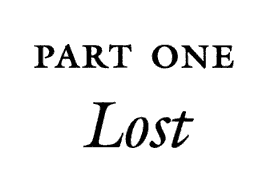Shadowlight
Authors: Lynn Viehl




Author's Note
PART ONE
Lost
Chapter 1
Chapter 2
Chapter 3
Chapter 4
Chapter 5
PART TWO
Found
Chapter 6
Chapter 7
Chapter 8
Chapter 9
Chapter 10
PART THREE
Gaven
Chapter 11
Chapter 12
Chapter 13
Chapter 14
Chapter 15
PART FOUR
Takyn
Chapter 16
Chapter 17
Chapter 18
Chapter 19
Chapter 20
Chapter 21
Epilogue
Excerpt: Dreamveil
Copyright
who sang me through this one
1
The Biotech Century
1
The American Heritage® Dictionary of the English Language,
Fourth Edition. Copyright © 2006 by Houghton Mifflin Company.

Lot 17—Collection of Olivia Kelly
Roman Imperial, Augustan, Late First Century BCE/Early
First Century CE, with Intact Papyrus Scroll, Height 7 in.,
17.8 cm.
$600,000-900,000 USD
The goddess Minerva standing with her weight on her left leg and her head turned to the right, her hands resting at her sides, wearing a chiton and peplos fastened on the right shoulder and falling in staggered folds down her left side, finely detailed face with thin nose, full lips, and narrow eyes with recessed pupils, her centrally parted straight hair woven into a crown of feathers and arrows.
Papyrus scroll, heavily inscribed in Latin, translation:
I have discovered that the one in service to our enemies the Cherusci has been encamped here since the thaw, although at the time of writing this letter I have yet not confirmed his identity. The evidence of copied scrolls, diverted marches, and assassinations among the ranks persuade me to believe him to be one of the couriers sent up from Judea last winter. Several have left the camp since my arrival, some hastily, all traveling to the southern camps. Among them, I am convinced, hides the traitor.
Tomorrow I shall journey to the forests near the mountains, where the Cherusci have been in skirmish with our border legions. Many have been captured alive, and from them I will obtain his name. Whenever I find a trustworthy messenger I will write to you of my progress and, I pray soon, too, my success.
Remember me in your prayers, brother, as you are ever in mine.
(Seal of) Tanicus
“I’m sorry, sir,” Harris Finley, the proprietor of the auction house, said over the phone as he reviewed the listing for the Minerva scroll case. “But bidding for that item is now closed.” He listened. “No, sir, I don’t have any information on the bidder. He purchased it through a third party and paid for the item with a certified bank check. May I ask—” He stopped, winced, and held the receiver away from his ear before he hung up the phone. “What an ass.”
“Is there a problem, Mr. Finley?” Jean, his young assistant, asked.
“Late bidders inevitably have bad tempers, my dear, especially when they’re very rich men unaccustomed to having their demands refused.” He regarded the listing once more. “This time, however, he’ll simply have to accept defeat gracefully.”
Jean frowned. “Who do you mean, sir?”
“Mr. Genaro.” Finley gave her a rueful glance. “It seems he never received a copy of last week’s preview.”
Now his assistant winced. “Oh, no. I thought I had e-mailed everyone.”
“Not to worry. These things happen, my dear, even to the illustrious Mr. Genaro.” Finley chuckled and patted her shoulder. “A two-thousand-year-old intact Roman scroll is a treasure worth having, certainly, but it isn’t as if losing it to another bidder will destroy his life.”
Seeing the sunrise today was important to Min. She wanted the right beginning to this special day: the first day of her new job, the first step toward a secure future.
“I got it, Daddy,” she said, lifting her coffee cup to toast the fountain in the square below. “I start today. Wish me luck.”
Darien surely would have, if he’d still lived. Three months and six days ago, while sitting in the square and dozing in the sun, Min’s father had gone home, his worn-out heart coming to a final, peaceful stop. She’d walked out to wake him for dinner and found him still and silent, his dark eyes closed and his white hair breeze-ruffled, a copy of
A Connecticut Yankee in King Arthur’s Court
still in his hands. As if even Death himself couldn’t part Darien from his beloved Twain.
For a long time afterward, the weight of Min’s grief had flattened everything to gray facades of what had been. But gradually the terrible pain had eased a little, and she began to see Darien’s death as more than her own loss. Her father had died as he had lived: quietly, with dignity, in a place he loved. Every time Min walked through the square now, she could almost feel him there, watching her and smiling a little.
It’s all yours now, baby girl,
he’d written in the letter that his lawyer had handed her after the funeral, along with Darien’s entire estate.
Keep it safe and watch your back.
That Min’s father had left her one of the oldest and most historically important private homes in Savannah had outraged plenty but surprised few. Over the last forty years Darien had flatly rejected hundreds of generous offers to buy Sapphire House, and not even the richest of the museum people—the righteous snoots, he’d called them—could convince him to sell his home into their covetous hands.
“That girl’s only twenty-three,” the president of the Savannah Ladies Historic Society had mourned aloud after her fourth mimosa at their most recent monthly luncheon meeting. “I’ve got purses that are older.”
“I don’t know what Darien was thinking.” Her vice president held a delicate lace hankie, with which she dabbed at the sweaty space between her large nostrils and thin upper lip. “She’s never been one of us. She’ll sell it to the first Yankee who comes along with a carpetbag full of cash and parking lot plans—I guarantee.”
The ladies really couldn’t be blamed for their assumptions. No one knew much about Min, except that Darien had kept her out of society and had sent her overseas to be educated. They had never bothered to get to know her, either, or they would have understood how much she loved Old Blue, and what she was prepared to do to take care of it.
She looked past the dew-beaded dark green iron leaves of the narrow balcony side railing to see the first rays of the sun gild the thick, bubbled glass panes in the third-story windows. The old oak shutters by the Rose Bedroom needed replacing; she’d have to talk to Thomas Gaudette about it the next time she saw him at church. He worked as a general handyman around the square, and had the know-how to find or make two new shutters to match the other forty-six—without charging her an arm and a leg in the process.
Her father’s weathered face smiled at her from the shadows of her memory.
That’s my girl.
She blew a little steam off the top of her cup before sipping the sweet, milky coffee she’d brewed for herself. Geraldine’s was better, but after her father had passed away the old cook had finally retired to live out her golden years on Tybee Island with her husband, six children, and twenty-seven grandchildren. Min was happy for her, but she missed her terribly.
Soon she’d have to go inside and start getting ready for work. She’d chosen what she planned to wear the night before—her favorite navy blue suit with a tailored snow-white blouse—but she wanted an hour to do her hair and makeup.
You can’t run do everything, sugar,
Geraldine had said whenever Min had complained about how long it took to brush and braid her long hair.
Young lady like you have to take her time, so she always look as cool and sweet as a peach.
With time Min had tamed her impatience, and now carefully planned and prepared for everything. Last week she’d ruthlessly traded the long, girlish length of her hair for a more stylish, asymmetrical wedge cut. She still hadn’t grown used to the weightless feel of it, but the more sophisticated look pleased her.
After a lengthy consultation at the salon where she’d had her hair cut, Min had also had her eyebrows shaped and her fingernails tipped with a classic, modest French manicure. She’d tested dozens of fragrances before deciding on a cool, subdued perfume that reminded her of the air after it rained. Her final splurge—and the most costly—had been a pair of decadently comfortable Italian leather pumps to match her suit.
Despite the care she took with them, Min had no illusions about her looks. A kind eye would call her black hair and full-lipped mouth striking, but her pallid skin had saddled her with the nickname Snowy as far back as grade school. Her narrow nose, angular cheekbones, and strong jawline kept her from being regarded as being pretty as a Disney princess, which she occasionally resented. Strangers regularly mistook her for a woman ten years older than she was, which she sometimes used to her advantage.
Her eyes were what annoyed her most. Beautiful eyes were a lifelong asset, and what girl didn’t want big blue eyes? Hers were large and clear enough, but the blue of her irises was so light they looked more like clouds than sky. Because they were so light, looking into them seemed to unsettle most folks. At least her boyfriend didn’t seem to mind them.
“You’re probably part alien, sweetie,” Tag would tease, and then kiss her frown away. “But I’m up for a close encounter with you anytime.”
Min knew her differences could be useful. Among the many things she’d learned while going to school in Europe was that she should treasure her individuality and emphasize rather than attempt to disguise it. The French students at the academy had shown her the best colors and styles to wear to show off her tall figure and pale skin, while the Italian girls had infected her with their love of beautiful bags and shoes. Even the sullen, sultry Spanish girls had given her a crash course in how to project an image of cool, mysterious reserve.
“You want wealthy men to like you, you smile at them,” Juanita, the daughter of a Madrid banker, had advised her. “You want them to
listen
to you, you don’t.”
Once the rim of the sun appeared above the treetops, Min finished her coffee and went inside to dress. Most of the jewelry her father had left to her was too old and ornate to wear, but on impulse she pinned to her lapel a fragile ivory-and-lapis cameo her father had sent to her for her last birthday at school.
This was my mother’s favorite day brooch,
Darien had written on the card.
Break it or lose it, and I’ll put you back up for adoption.
Twenty-one years ago the idea that old Darien, a middle-aged, confirmed bachelor, had had the nerve to adopt himself a baby girl had been the talk of the scandalmongers. At the time all of the still-single ladies in the city had been outraged at how neatly he had bypassed the usual way of getting children—marriage to one of them—while their parents had muttered darkly over his impropriety and disrespect by taking on some riffraff’s unwanted brat. One needn’t bring a no-named orphan home and install her in the house as if she were family; that was what children’s charities were for. After the spectacle of Min’s baptism at St. John’s, when Darien had announced that he was not only giving Min his famous surname but making her his sole heir, his friends had publicly congratulated him, and privately mourned the end of one of the city’s most historic bloodlines.
Darien never cared what anyone thought. “Having the mumps when I was a teenager left me sterile,” he told his daughter once when she’d asked why he’d adopted her. “I think it was God’s way of saving me from having to put up with some meddling woman in my house for the last thirty years.”
“But I’m a woman,” Min reminded him.
Darien’s smile turned mysterious. “Oh, someday you’ll be a lot more than that, honey.” He laughed. “Besides, you were just a tiny little thing. First time I saw you at the orphanage I thought, ‘Now, there’s a girl I could teach to put up with my nonsense.’ ”
Min left the house at eight fifteen. She could walk from her home on Abercorn to the Oglethorpe Consolidated Investments building off Bay Street, one of the primary reasons she had taken the job as Boyd Whitemarsh’s receptionist and personal assistant. The other, more personal reason had to do with her determination to preserve her legacy.
Sapphire House had been designed and built for the very first Darien, a cotton merchant and part-time smuggler who had made a very large fortune in the early eighteenth century, and who himself had often bragged that he ended up with more money than taste or brains. Happily, that Darien had hired an architect who had come to Savannah to see his sister married. William Jay’s architecture would one day define the elegance and grace of the era, but at the time he met Darien he was just a cheerfully brash young man looking to make a name for himself in the New World.
With Darien’s bottomless pockets and unconditional blessings, Jay designed a lavish four-story, Regency-style mansion, and over the next three years personally supervised the construction. As homage to his patron’s magpie love of anything shiny, Jay had commissioned and installed an enormous lead crystal chandelier in every room, and ordered sparkling white sand brought over by the boatload from Tybee Island to be mixed in with the stucco and plaster.
There were stories told about the house almost from the day the first Darien had moved in. People had been observed entering through the back door but were never seen leaving, and then there were the mysterious deliveries made in the middle of the night by dour-faced men driving covered carts. When asked about the strange comings and goings, Darien would only smile and change the subject.
As both a historic landmark and a private residence, Sapphire House required an enormous amount of upkeep, and the financial burden had been a constant drain on Darien’s modest fortune. But Min had been raised in the shadow of the Cathedral of Saint John the Baptist, and walked down streets paved with Savannah grey brick, the old building blocks of the city, that had once been river mud before it had been shaped by the hands of slaves. In every wrought-iron balcony railing and pocket doorway history stood, watching her with its sad eyes. She couldn’t imagine turning over Old Blue to strangers who didn’t care for anything but its prestigious address and resale value.
“I’ve spent more on Old Blue than likely I should have, and the way the economy’s going, my accounts won’t last more than a couple years,” old Darien had told her. “If you’re to hang on to the house after I’m gone, you’ll need to catch yourself a rich husband.”
Min had something better than a wealthy beau: her hunches. She’d started having them in her early teens, when she began having odd, random flashes of insight about things. She had no idea how it worked or why; at any given moment a feeling would come over her, suddenly and with no warning, and then she simply knew, as if she’d already experienced what hadn’t yet happened.
It might have frightened her, had the hunches been about ominous things. Instead they always assured her of ordinary, happy events, like knowing that she’d ace a test before she took it or sensing that a present from Darien was about to come in the mail. Then at college she’d started following the stock exchange for an economics class assignment, and discovered that her hunches also allowed her to anticipate positive market trends with near-flawless accuracy.
She’d never told her father about her ability. Darien had been a strict, faithful Catholic, and believed such things were the work of the devil. But Min believed her hunches were a gift, and as long as she was discreet, they were going to allow her to marry whomever she wanted, live comfortably, and take proper care of Sapphire House.
All she really had needed was a job that would teach her everything else she didn’t know about the market, which she’d already found. In a few hours she was going to start working as the receptionist/personal assistant for the vice president of one of the most successful commercial investment firms in the city. There she would gain the practical experience she needed in order to begin investing her own funds. And while her hunches weren’t telling her anything about her new job, she knew she’d made the right choice.
Today would be the day that changed her life forever.